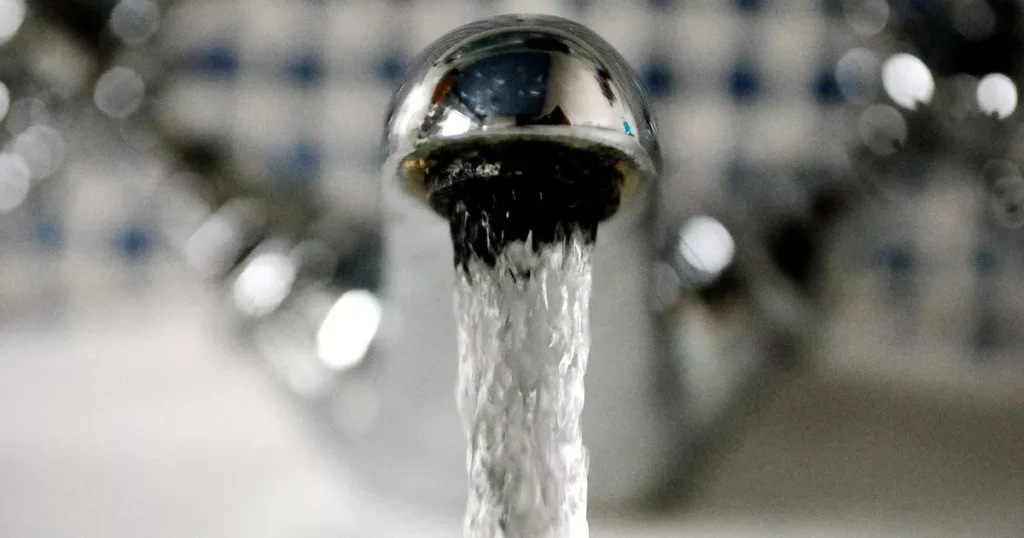Pennon, the owner of South West Water, has reported a concerning rise in sewage leaks and pollution incidents. The company attributes these issues to ‘exceptionally high’ groundwater levels, marking the third wettest October to August period on record.
The Exeter-based firm has emphasised that the heightened rainfall and water tables have significantly impacted their infrastructure, leading to numerous storm overflows and pollution incidents. This development raises critical questions about the resilience of the water industry’s infrastructure.
Increased Sewage Leaks Due to Weather Conditions
The unprecedented weather conditions between October and August have led to elevated groundwater levels, according to Pennon. This increase has directly contributed to an upsurge in sewage leaks and pollution events. The company has highlighted that this period recorded the third highest rainfall ever, exacerbating the strain on their systems. The heightened water tables have made it particularly challenging for the existing infrastructure to cope, resulting in more frequent pollution incidents.
Impact on Storm Overflows
Pennon has reported a significant rise in the number of storm overflows, attributed to the elevated groundwater levels. These storm overflows occur when the sewer systems are overwhelmed by the volume of water, often leading to untreated sewage being discharged into rivers and seas. The company has faced criticism as these incidents have raised environmental concerns and questions about the efficacy of their infrastructure.
Regulatory and Financial Challenges
As the industry regulator Ofwat prepares to set new annual household water bills in December, Pennon’s financial stability may face additional challenges. The proposed cap on fee increases is intended to help customers, but Water UK has issued a warning. They caution that this cap could impede utilities’ abilities to secure necessary funds for addressing infrastructural issues like sewage leaks. There is a growing debate about how to balance consumer protection with the need for substantial investment in the water infrastructure.
Pennon’s Response and Environmental Commitment
Pennon’s dedication to tackling storm overflows and ensuring water quality is also reflected in their customer support initiatives. Over 140,000 customers have benefited from affordability programmes, which have seen a 35 per cent increase in participants this year. These initiatives highlight the company’s multifaceted approach to handling both environmental and customer service challenges.
Concerns Over Executive Compensation
This controversy underscores the broader issue of executive compensation in utility companies, especially as they face increased public and regulatory scrutiny. The timing of the pay rise has raised eyebrows, prompting calls for greater accountability and alignment of executive incentives with environmental performance.
Historic Leakage and Pollution Data
The data from previous years points to a systemic issue within the industry. As water companies struggle to manage and maintain ageing infrastructures, the need for significant investment and innovative solutions becomes even more apparent. The revelations have intensified the demand for a more transparent and accountable approach to water management.
Future Prospects and Industry Outlook
The broader industry outlook remains uncertain as firms grapple with the dual pressures of regulatory compliance and operational efficiency. Future prospects will heavily depend on securing adequate funding, implementing effective infrastructural upgrades, and maintaining a balance between environmental responsibilities and business performance.
Stakeholder Reactions and Industry Response
The company’s ongoing efforts to enhance customer support and invest in infrastructure are seen as positive steps. However, the efficacy of these measures will need to be demonstrated over time to rebuild public trust and ensure sustainable environmental management. The industry’s response will be closely watched as it navigates these complex challenges.
Pennon’s attribution of increased sewage leaks and pollution to exceptionally high groundwater levels highlights a significant challenge for the water industry. The company’s response, focused on infrastructure investment and customer support, reflects a commitment to mitigating these issues.
As regulatory and financial pressures mount, the effectiveness of Pennon’s strategies will be critical in shaping the future of water management. The broader industry must also address systemic infrastructural weaknesses to ensure environmental sustainability and public trust.


